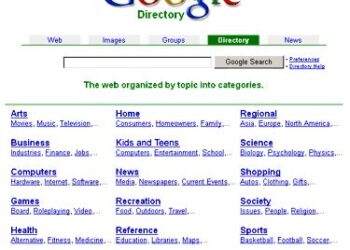Introduction to Business to Business (B2B)
Business to Business (B2B) refers to the transactions or business dealings between two or more businesses rather than between businesses and individual customers. It involves the exchange of goods or services between companies, such as manufacturers selling products to wholesalers or retailers buying goods from suppliers.
Why is B2B important?
B2B is important because it enables businesses to source the necessary materials, products, and services needed to operate and grow. It also allows businesses to establish relationships with other companies, which can lead to long-term partnerships and collaborations. B2B transactions are often more complex and involve larger quantities of products or services, which can lead to significant cost savings when compared to B2C (Business to Consumer) transactions.
Types of B2B transactions
There are several types of B2B transactions, including:
- Product-based transactions: These are transactions where one business sells a physical product to another business. For example, a manufacturer selling computer components to a computer assembly company.
- Service-based transactions: These are transactions where one business sells a service to another business. For example, a marketing agency providing advertising services to a software development company.
- Information-based transactions: These are transactions where one business sells information or data to another business. For example, a market research firm providing customer data to an e-commerce company.
- Financial-based transactions: These are transactions where one business provides financial services to another business. For example, a bank providing a loan to a manufacturing company.
In conclusion, B2B transactions are a critical component of the economy and play a significant role in the success of many businesses. Understanding the different types of B2B transactions can help businesses identify new opportunities for growth and establish successful partnerships with other companies.
B2B Marketing Strategies: Target Market Identification, Lead Generation Techniques, Content Marketing, Social Media Marketing, Email Marketing, and Event Marketing
B2B (business-to-business) marketing is a type of marketing that involves the promotion and sale of products or services from one business to another. In order to succeed in B2B marketing, businesses must identify their target market, generate leads, create valuable content, and promote their brand through various channels such as social media, email marketing, and event marketing. Here are some effective B2B marketing strategies:
Target Market Identification
The first step in B2B marketing is to identify the target market. This involves understanding the needs of the target audience, their pain points, and how your product or service can solve their problems. By understanding the target market, businesses can create personalized marketing messages that resonate with their audience and increase the chances of converting them into customers.
Lead Generation Techniques
Lead generation is the process of attracting and converting potential customers into leads. One effective way to generate leads is through search engine optimization (SEO), which involves optimizing your website and content for search engines like Google. Other lead generation techniques include content marketing, social media marketing, and email marketing.
Read more:
- Boost Your Productivity with a Business Phone
- Whatsapp Web Business
- Business Office: The Key to Success
Content Marketing for B2B
Content marketing is the process of creating and distributing valuable content that attracts and engages a target audience. For B2B marketing, businesses can create informative blog posts, whitepapers, case studies, and eBooks that provide value to their audience while also promoting their brand. By creating valuable content, businesses can establish themselves as industry experts and build trust with their audience.
Social Media Marketing for B2B
Social media marketing involves using social media platforms like LinkedIn, Twitter, and Facebook to promote a business and its products or services. For B2B marketing, businesses can use social media to connect with potential customers, share valuable content, and build relationships with their audience. Social media can also be used to promote events and webinars.
Email Marketing for B2B
Email marketing is the process of sending targeted marketing messages via email. For B2B marketing, businesses can use email marketing to nurture leads, promote products or services, and provide value to their audience. By segmenting email lists and personalizing messages, businesses can increase the effectiveness of their email marketing campaigns.
Event Marketing for B2B
Event marketing involves promoting a business and its products or services through events such as conferences, trade shows, and webinars. For B2B marketing, events can be a great way to connect with potential customers, showcase products or services, and build relationships with industry influencers. Businesses can also generate leads by offering free resources or discounts to event attendees.
Sales Process for B2B
B2B sales, also known as business-to-business sales, involves selling products or services from one business to another business. The sales process for B2B sales can be a lengthy and complex process as it often involves multiple decision makers and a longer sales cycle. The process typically includes the following steps:
- Prospecting: Identifying and researching potential clients
- Qualifying: Determining if the potential client is a good fit for your product or service
- Meeting: Setting up a meeting with the decision makers
- Presenting: Presenting your product or service to the decision makers
- Handling objections: Addressing any concerns or objections that the decision makers may have
- Close: Finalizing the sale and signing the contract
- Follow-up: Continuing to build the relationship with the client and maintaining their satisfaction with your product or service
Sales Techniques for B2B
When it comes to B2B sales, there are several effective sales techniques that you can use to improve your chances of success. Some of these techniques may include:
- Relationship building: Building a strong relationship with the client is key to the success of B2B sales
- Providing value: Showcasing the value that your product or service can provide to the client
- Problem-solving: Identifying and addressing the specific needs and pain points of the client and offering solutions
- Active listening: Paying close attention to the client’s needs and concerns and responding appropriately
- Customization: Tailoring your product or service to the specific needs of the client
- Consistency: Consistently following up with the client and providing excellent customer service
Negotiation Skills for B2B
Negotiation is a crucial aspect of B2B sales as it involves finding a mutually beneficial agreement for both parties. Some essential negotiation skills for B2B sales may include:
- Preparation: Researching the client and their needs and preparing accordingly
- Active listening: Listening to the client’s needs and concerns and responding appropriately
- Flexibility: Being open to alternative solutions and compromising when necessary
- Patience: Understanding that B2B sales can be a lengthy process and being patient throughout the negotiation process
- Clarity: Clearly communicating your needs and expectations to the client
- Win-win mindset: Striving to find a mutually beneficial agreement for both parties
B2B Supply Chain Management: An Overview
B2B Supply Chain Management is the process of managing and optimizing the flow of goods, services, and information between businesses. This process encompasses all the activities involved in bringing a product or service from the supplier to the end customer.
Supplier Selection Process for B2B
One of the most critical aspects of B2B Supply Chain Management is supplier selection. The process of supplier selection involves finding the right supplier who can deliver the required goods or services at the right price, quality, and time.
The supplier selection process includes several steps, such as identifying potential suppliers, evaluating their capabilities, negotiating terms and conditions, and finally selecting the best option.
Inventory Management for B2B
Inventory management is another critical aspect of B2B Supply Chain Management. It involves managing inventory levels to ensure that there is enough stock to meet customer demands while avoiding overstocking, which can tie up capital and increase storage costs.
Effective inventory management requires businesses to track inventory levels, monitor customer demand, and forecast future demand to ensure that they have the right amount of inventory on hand at all times.
Shipping and Logistics for B2B
The shipping and logistics process plays a crucial role in B2B Supply Chain Management. It involves the transportation of goods from the supplier to the end customer in a timely and cost-effective manner.
The shipping and logistics process includes several activities, such as transportation planning, route optimization, carrier selection, and tracking and tracing of shipments. Effective shipping and logistics management can help businesses reduce transportation costs, improve delivery times, and enhance customer satisfaction.
Overall, B2B Supply Chain Management is a complex process that involves several interrelated activities. By effectively managing each of these activities, businesses can optimize their supply chain and provide better value to their customers.
What is B2B Customer Relationship Management (CRM)?
B2B Customer Relationship Management (CRM) is a strategy that businesses use to manage interactions with their clients and customers. It involves using technology, data, and processes to analyze customer interactions and improve the overall customer experience. The goal of B2B CRM is to build long-term, profitable relationships with customers by understanding their needs and preferences and providing them with personalized experiences.
Importance of CRM in B2B
CRM is critical for B2B companies as they often have fewer customers but higher transaction values. By understanding their customers’ needs and preferences, B2B companies can provide better service, increase sales, and boost customer loyalty. CRM also helps businesses to identify new opportunities, minimize customer churn, and improve their reputation in the industry.
CRM Strategies for B2B
There are several CRM strategies that B2B companies can use to improve customer relationships:
- Personalization: B2B companies can use customer data to personalize their interactions and offer tailored solutions.
- Segmentation: By segmenting customers based on their needs and behaviors, B2B companies can provide more targeted marketing and sales efforts.
- Automation: Automation can help B2B companies to streamline processes, reduce errors, and improve efficiency.
- Integration: Integrating CRM with other business systems such as marketing automation and sales tools can provide a more holistic view of the customer and improve collaboration between teams.
Customer Retention Techniques for B2B
Customer retention is essential for B2B companies as it can be more expensive to acquire new customers than to retain existing ones. Some customer retention techniques that B2B companies can use include:
- Regular communication: Frequent communication with customers can help to build trust and strengthen relationships.
- Customer loyalty programs: Loyalty programs can incentivize customers to stay with a business and offer rewards for repeat purchases.
- Exceptional customer service: Providing excellent customer service can help to differentiate a business from its competitors and increase customer loyalty.
- Continuous improvement: Continuously improving products and services to meet the changing needs of customers can help to retain customers and attract new ones.
Customer Feedback Management for B2B
Customer feedback is critical for B2B companies as it can help them to identify areas for improvement and better understand their customers’ needs. Some customer feedback management techniques that B2B companies can use include:
- Surveys: Surveys can be used to gather feedback on products, services, and customer experiences.
- Social media monitoring: Monitoring social media channels for customer feedback can help businesses to quickly respond to customer complaints and concerns.
- Focus groups: Focus groups can provide more in-depth feedback on specific products or services and help businesses to identify areas for improvement.
- Customer feedback analysis: Analyzing customer feedback data can help businesses to identify trends and patterns and make data-driven decisions to improve the overall customer experience.
Overview of B2B E-Commerce
B2B E-Commerce refers to the buying and selling of goods or services between businesses through an online platform. This type of transaction aims to streamline the process of procurement and enhance the efficiency of business-to-business interactions. B2B E-Commerce includes a variety of models such as e-procurement, e-marketplaces, and e-distributors.
Benefits of B2B E-Commerce
One of the major benefits of B2B E-Commerce is that it allows businesses to automate and simplify their procurement processes, resulting in lower costs and increased efficiency. It also provides businesses with access to a wider range of suppliers and buyers, enabling them to expand their reach and increase their revenue. Additionally, B2B E-Commerce can help businesses to improve their customer service by providing real-time inventory tracking and order fulfillment.
Challenges in B2B E-Commerce
One of the main challenges in B2B E-Commerce is the need to integrate online systems with existing business processes and technologies. This can be a complex and time-consuming process that requires significant investment in IT infrastructure and personnel. Another challenge is the need to ensure security and privacy in online transactions, particularly when dealing with sensitive data and information. Finally, there is a risk of commoditization as businesses compete on price rather than value-added services.
B2B E-Commerce Platforms
There are a variety of B2B E-Commerce platforms available, each with their own unique features and capabilities. Some of the most popular platforms include Alibaba, Amazon Business, SAP Ariba, and Tradegecko. These platforms offer a range of services such as online marketplaces, e-procurement tools, and supply chain management solutions. When choosing a platform, businesses should consider factors such as ease of use, scalability, and integration with existing systems.
B2B Finance and Accounting: Understanding the Basics
Business-to-business (B2B) finance and accounting refers to the financial management and accounting practices involved in transactions between two businesses. These practices include cost analysis, budgeting, and payment terms, among others. Understanding these basics is crucial for any business that engages in B2B transactions.
B2B Financial Management
B2B financial management involves the processes and strategies used to manage finances in a B2B context. This includes financial planning, forecasting, and analysis. It also involves the management of working capital, cash flow, and credit. Effective financial management can help businesses optimize their financial performance and achieve their goals.
Cost Analysis for B2B
Cost analysis is the process of determining the costs associated with producing a product or delivering a service. In a B2B context, cost analysis is used to determine the cost of goods sold and the cost of services rendered. This information is essential for pricing decisions, as well as for analyzing profitability.
Budgeting for B2B
Budgeting involves the process of creating a plan for the allocation of financial resources. In a B2B context, budgeting is used to allocate resources for specific projects, departments, or functions. This helps businesses ensure that they have sufficient resources to achieve their goals and objectives.
Payment Terms for B2B
Payment terms refer to the agreements between two businesses regarding the payment for goods or services. These terms can include the payment amount, payment schedule, and payment method. Payment terms are important for managing cash flow and ensuring that both parties are satisfied with the transaction.
In conclusion, B2B finance and accounting is an essential aspect of any business that engages in B2B transactions. Understanding the basics of B2B financial management, cost analysis, budgeting, and payment terms can help businesses optimize their financial performance and achieve their goals.
B2B Legal Considerations
Business to business (B2B) transactions involve legal considerations that differ from those in business to consumer (B2C) transactions. In B2B transactions, there are contractual agreements, intellectual property protection, and data protection and security to consider.
Contractual Agreements in B2B
Contracts are essential in B2B transactions to ensure that both parties understand their obligations and responsibilities. Contracts should include terms and conditions, payment terms, warranties, and dispute resolution mechanisms. A well-drafted contract can prevent costly legal battles and protect both parties from potential risks.
Intellectual Property Protection in B2B
Intellectual property (IP) protection is crucial in B2B transactions, especially in industries where innovation is significant. Businesses should take steps to protect their IP by registering trademarks, patents, and copyrights. When entering into B2B transactions, businesses should also ensure that they do not infringe on others’ IP rights.
Data Protection and Security in B2B
Data protection and security are increasingly relevant in B2B transactions, given the rise of cyber threats. Businesses should take steps to protect sensitive data, including personally identifiable information, trade secrets, and confidential information. Businesses should also ensure that they comply with relevant data protection laws and regulations.
In conclusion, B2B transactions involve legal considerations that businesses should carefully consider. Contracts, IP protection, and data protection and security are essential components of any B2B transaction. By understanding and addressing these legal considerations, businesses can protect themselves and their interests.
B2B Human Resources: Recruiting, Training, Performance Management, and Employee Engagement
In the world of business-to-business (B2B) transactions, human resources play a vital role in ensuring the success of a company. HR professionals are responsible for recruiting the best talents, training and developing employees, managing their performance, and keeping them engaged in their work.
Recruiting for B2B
Recruiting for B2B companies is not an easy task. HR professionals must be able to identify the skills and knowledge required for each position, as well as the personality traits that fit the company’s culture. They must also be familiar with the industry and the competition to attract top talents.
HR professionals can use various recruiting methods, such as job postings, referrals, social media, and networking events. They must also use effective screening and interviewing techniques to identify the best candidates.
Training and Development for B2B
Training and development are crucial for the success of employees and the company. HR professionals must design and implement training programs that align with the company’s goals and strategy, as well as the employees’ needs and aspirations.
The training programs can include various methods, such as classroom training, on-the-job training, mentoring, coaching, and e-learning. HR professionals must also evaluate the effectiveness of the training programs and adjust them accordingly.
Performance Management for B2B
Performance management involves setting goals, providing feedback, and evaluating performance. HR professionals must design and implement a performance management system that aligns with the company’s goals and strategy and provides a fair and objective evaluation of employees.
The performance management system can include various components, such as goal setting, performance appraisal, feedback, coaching, and recognition. HR professionals must also communicate the performance expectations clearly and provide support and resources to help employees achieve their goals.
Employee Engagement for B2B
Employee engagement is essential for employee retention, productivity, and satisfaction. HR professionals must design and implement an employee engagement strategy that fosters a positive work environment, promotes teamwork and collaboration, and recognizes and rewards employees’ contributions.
The employee engagement strategy can include various activities, such as employee surveys, team-building events, recognition programs, and communication channels. HR professionals must also listen to employees’ feedback and concerns and address them promptly.
Conclusion: Understanding Business-to-Business (B2B)
After understanding the world of business-to-business (B2B), it is clear that this type of commerce has significant differences compared to business-to-consumer (B2C). B2B companies typically focus on building relationships with other businesses to provide services or products that meet their needs. The primary goal of B2B companies is to generate revenue and profits by creating long-term partnerships with clients.
Looking towards the future, B2B companies will need to continue to adapt to changing technologies and evolving business practices. The rise of e-commerce and digital transformations has made it easier for businesses to connect and collaborate with one another. To remain competitive, B2B companies must continue to innovate and implement new strategies to maintain strong relationships with clients and provide the best services possible.
In conclusion, B2B is a complex and constantly evolving world that requires a deep understanding of business operations and practices. The future of B2B looks promising with new technologies and innovations on the horizon, but companies need to remain vigilant and adaptable to stay ahead of the game.







